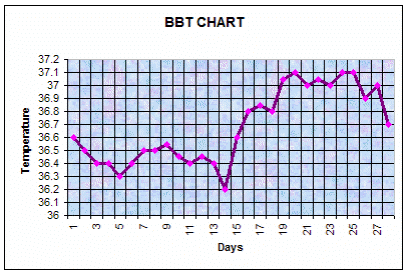'BBT' Basal Body Temperature Charting for Conception
/‘BBT’ or basal body temperature charting: this involves taking your temperature every morning prior to getting out of bed (after a minimum of 3 hours sleep), temperature can be taken orally or vaginally- don't alternate between locations as this will affect accuracy, attempt to take the temperature at the same time daily, as temperature can vary with time. You require a thermometer with at least 1 decimal (0.1) placement- 2 decimal places is even better (0.2), this is because the daily temperature is plotted on a graph, most Fertility apps have a BBT graph option (i personally used Flo) you simply enter the data and it's plotted for you. Over the course of your cycle various information can be gathered from the graph:
Preovulation: this is data pertaining to the follicular cycle, it is reflective of FSH & estrogen levels, the temperatures should remain low in this part of the cycle, however if inflammatory conditions such as Endometriosis are present you may notice some thermal fluctuations.
Ovulation: this is observed by a maintained temperature shift of at least 0.2 C- 0.5 over a 48 hour period, this thermal shift ideally should get displayed as higher temperatures to earlier in your cycle, some women notice a drop in the temperature when ovulation itself occurs, this thermal change indicates ovulation has previously occurred, therefore as soon as you notice a dip in temps or a rise starting to occur ensure your having sex during this time (bear in mind the egg only surivives 24 hours, so ideally your wanting sperm to already be present) Timing intercourse every 2 days during your Fertile week is beneficial (healthy sperm can live up to 5 days in the female reproductive tract). To note those with ovulation conditions such as Poly Cystic Ovary Syndrome (PCOS) may notice minor thermal rises- however the temperature falls back down, this is often due to the body attempting to unsuccessfully ovulate.
Post ovulation: this is regarded as the Luteal phase, the temperatures here should remain steady and high- reflective of healthy Progesterone levels, only just prior to menstruation should it start to drop, or if conception has occurred it will continue to rise.
To note illness, medications, alcohol, travel & tiredness can alter the accuracy of BBT. It is beneficial to combine BBT data with other indicators; especially cervical mucous, this should become noticeable 2- 3 days prior to ovulation as more cloud vaginal discharge, then at the time of ovulation to facilitate sperms transportation mucous changes to a clear watery viscosity. Over several cycles you should start to see a pattern of when you ovulate, your most Fertile time will be 3- 5 days prior to your temperature rise, giving an indication when to time intercourse.
Other Fertility tips; suggest researching the benefits of:
● Low dose Aspirin (do not use if history of clotting disorders or taking anti-coagulants) post ovulation for reducing inflammation + encouraging implantation to take place.
● The use of Mucinex prior to ovulation if cervical mucous is scant.
Happy Charting! x
BBT Example





